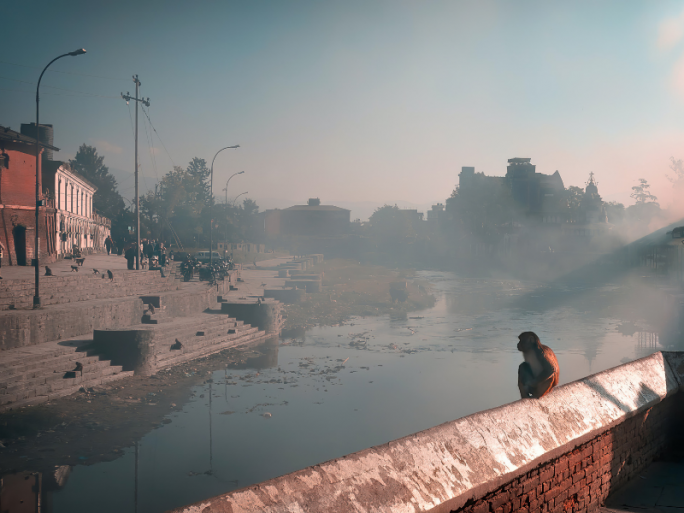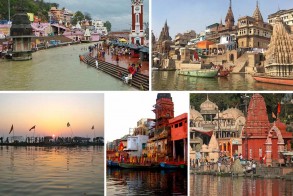Lastjourney Blog
8 Interesting Facts You Must Know About Cremation

 Table of Contents
Table of Contents Reading Time: 4 minutes
Why opt for a cremation? Some people prefer a simple funeral to the decomposition process that occurs in a burial; others prefer cremation to the decomposition process that occurs in a burial. Others are motivated by financial considerations; cremation is frequently – but not always – less expensive than a funeral and traditional casket burial.
Cremation has been increasingly popular in recent years for a variety of reasons. By 2030, cremation is predicted to outnumber burial by more than 70%.
Even yet, some people are unfamiliar with the cremation procedure and may misunderstand it, which is straightforward and dignified. Continue reading to learn more about cremation:
Here are ten things you probably didn’t know:
-
Does Cremation rule out the possibility of Funerals?
This information is worth mentioning first because it illustrates how many of us make assumptions regarding cremation. Since we frequently link burials with funerals, many people wrongly believe that cremation means foregoing a conventional funeral service Hyderabad.
This is not the case. Although some individuals prefer to cremate their loved ones rather than hold elaborate funerals, it is not uncommon for people to hold funerals before or after the cremation.
-
What are the cremation remains called?
The remains that a family takes home in an urn or scatters following someone’s cremation are frequently referred to as “ashes.” Many people automatically assume that’s what they are.
This isn’t correct. They merely have the appearance of ashes. The remains are essentially the deceased’s ground-up bones.
Getting a better understanding of cremation facts like this one might also help you appreciate the process’s inherent nature. Cremation, for example, isn’t just a question of burning a body until all that’s left is ashes. Crematoriums use extremely high temperatures to completely burn away a body’s tissues.
Nothing should be left behind after a cremation except bones. The bones will subsequently be broken down by powerful grinding equipment at the crematorium before being given to the deceased’s loved ones. Cremated remains resemble gritty sand and range in colour from pale to light grey, weighing 4 to 6 pounds for an adult.
-
What is used instead of woods for cremation?
According to a United Nations survey, 400-500 kg of wood is required to cremate one body, and 50 to 60 million trees are burned for cremations in India every year, according to CNN.
While the final rituals of a loved one are emotional, other options can ensure a smooth cremation while putting less strain on the firewood used for funerals. These include cow dungs, pyre ovens, and white coal cremations.
-
Which is better: burial or cremation?
For a long time, it has been a default assumption in many nations and world countries that, even if cremation is an option, burial is the conventional “go-to” method of disposing of a deceased person.
That is beginning to change. Cremation is getting more and more popular. 2015 was the first year in which Americans choose cremation over burial at a higher rate.
This tendency could be explained in a variety of ways. One is the rise in funeral expenditures. Burial is more expensive than cremation when all other circumstances are equal.
Shifts in which religions permit cremation could explain why individuals are becoming increasingly comfortable with it. Because traditional Catholic beliefs suggest that the body is precious and not merely a temporary receptacle for the soul, Catholic teachings have traditionally held that cremation is inappropriate.
The Vatican, on the other hand, has become more liberal on the subject in recent decades. As a result, Catholics are more at peace cremating their loved ones.
Another factor could be a greater emphasis on sustainability. Cremation may be the more environmentally friendly option because it utilises fewer resources in the long run than burial.
-
How is the body prepared for cremation?
Before being identified, the body is usually cleansed, cleaned, and dressed.
The technician next removes any jewellery or other valuables that you want to keep. Mechanical or battery-operated medical devices and prostheses are also removed to avoid a response during the cremation procedure. Pins, screws, and joints, for example, remain in place. Medical device recycling rules differ for each facility, however, the equipment is never reused in its original state. They are disassembled, melted down, or otherwise disposed of responsibly.
-
Is embalming required for cremation?
Embalming is a method of preserving human remains for a brief period. This is accomplished by employing a chemical that prevents decomposition. This is done in a funeral environment to prepare the deceased for funeral viewings or ceremonies. Embalming isn’t necessary, unless there is a public viewing.
Funeral specialists may, however, advise based on the length of time between the date of death and the cremation. Since the body is normally cremated within days of the death, direct cremation eliminates these difficulties. Refrigeration can take the place of embalming for that short period.
-
How flexible is the cremation process?
In many ways, direct cremation is more flexible than traditional cremation. Families can pick the type of cremation they choose. They are capable of handling their planning and paperwork. They have the option of holding or foregoing services. They can also pick when these services are held, among other things. A direct cremation can also be pre-arranged to alleviate some of the burdens associated with funeral planning and payment.
-
How to plan a cremation for my loved one?
Funerals, whether cremation or burial, can be extremely stressful for a family, particularly when a death occurs unexpectedly. That is one of the main reasons why direct cremation has grown so popular. Simplicity and stress are synonymous with minimum forethought. The cremation process can begin once all government documentation is completed and transportation to a crematorium has been arranged. These duties can be completed easily or with the assistance of funeral directors because they involve less effort. All of this can be started with a simple phone call if a preplanned funeral has been scheduled. During a stressful period, this simplicity can relieve a lot of tension.
Your email address will not be published. Required fields are marked *












